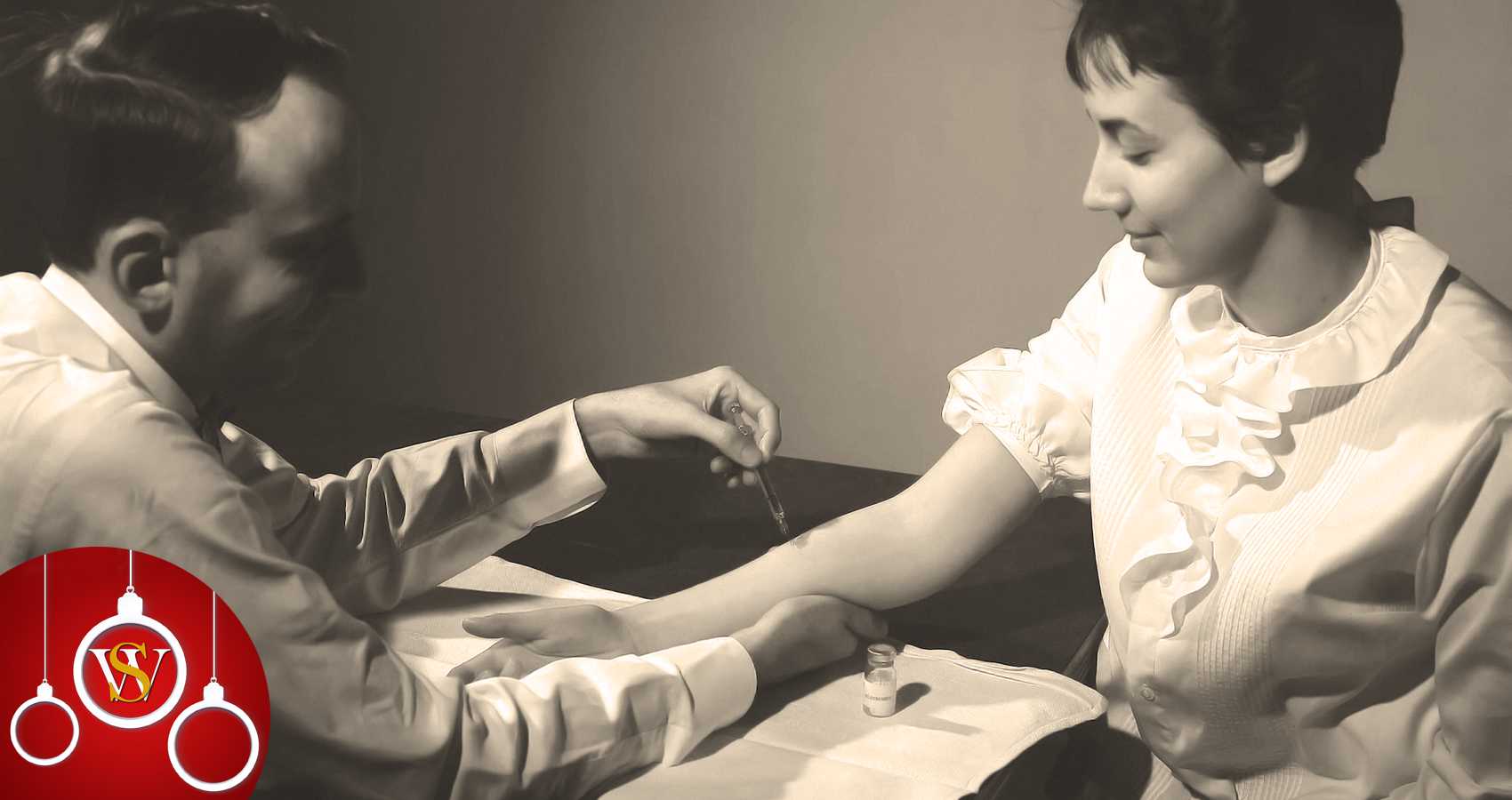Christmas Denied
written by: Phyllis Souza
It was the Summer of 1945 when Mary walked into the doctor’s office to get the results of her tests.
The doctor looked up and motioned. She sat on the chair on the opposite side of his large wooden desk.
Her heart sank when she noticed an open file. She wondered if the results were there.
After he finished jotting notes, he put down his pen, tugged at the lapels of his white lab coat, and placed his folded hands on his desk. “Mary, you have tuberculosis. Unfortunately, it’s spread to both lungs.”
“Tuberculosis?” She closed her eyes. “My God—no—” With tears welling, she sputtered, “I h-have a three-year-old daughter, Sharon.”
“I’m sorry, you’ll have to make arrangements for your child.”
“My sister, Laura, will take care of her. She has a little girl too.”
“I’m going to have you admitted into Olive View Sanitarium in San Fernando Valley.”
“When?”
“Sometime during the week.”
“Why can’t I stay home?” Searching into his face, Mary saw sadness.
“I know how you must feel.”
“You don’t. My sister and my father.” She buried her face in her hands and cried. “They both died of tuberculosis.”
“I’m sorry, but it’s the law. The best advice I can give is to think of it this way. You’ll get plenty of rest and fresh air.”
A quiet stillness crept into the room.
“I’m going to die.” She shook her head.
“Mary, you mustn’t think like that. Many people are going through the same thing. Besides, you don’t have any other options. No one does at this stage of the disease.”
She took a deep breath, rose slowly from her chair, and wandered to the window. She looked out. After she’d collected her thoughts, she asked, “Is there a cure?”
“There’s a drug called Streptomycin, which has benefited many patients.”
She turned and looked him in the eye. “How long will I be there?”
“Six months to a year. I know it’s not easy to be away from home, but you’ll make friends. Time and fresh air are the best cures.”
“Will I be able to see my child?”
“There’s a visiting room with a large window.”
Her heart dropped.
***
Sprawling green lawns, colorful flowers, and white buildings roofed with red tiles. Mary had just entered the grounds of Olive View Sanitarium.
Inside, she waited in a long line to check in.
Finally, she reached the counter. Soon after, she was interviewed, given a physical, and weighed. 98 pounds.
A nurse came to escort her into a ward on the third floor.
The room: A line of white metal-framed beds and nightstands along one wall. Across the room were French windows that opened into a huge porch.
Outside, the sunlight swept over a canopy of green branches in the olive orchard below.
Around five o’clock, a robust nurse came into the ward. A sterile container in hand, she marched over to Mary’s bed and barked an order, “Cough up some phlegm and spit it into the jar for a sputum culture.”
Mary sat. Her trembling hand reached for the jar. She brought it up under her chin and coughed. Nothing came up. She coughed again, again and again. She tried until her face turned red and her chest hurt. “I-I can’t.”
“Get up.”
Mary slid out of bed.
“Turn around.” The nurse wrapped her arms around Mary’s waist. She squeezed as hard as she could. Mary coughed. A tighter squeeze. Mary coughed up bloody phlegm.
As if dancing on waves, Mary called out, “I- I’m going to faint.”
When she opened her eyes, she was back in her bed. Night had obliterated the day.
Days turned into weeks, weeks into months.
Outside, autumn leaves swayed, and branches rustled.
Inside, young nurses streamed in and out of the ward. They offered clean handkerchiefs and newspapers.
Signs of a cure were shifting in the right direction. For an hour a day, Mary could sit in a chair and read a book.
One dark afternoon, she started a letter to her sister.
Dear Laura,
Thank you for bringing Sharon to see me. She seemed happy. I loved the way she threw kisses. It took a couple of days to get over the visit. That was the hard part.
Mary’s eyes blurred. She couldn’t finish the letter.
She folded the paper, put it in the pocket of her robe, and returned to her bed.
Garlands weaved with holiday decorations on Christmas Eve lined the ward’s walls. A lighted Christmas tree glowed in the corner.
Patients sat in their beds and opened gifts from their families.
Mary got a photograph from Laura, Sharon sitting on a vanity bench. She wore a red dress and held a baby doll on her lap. She felt so empty she wept.
Later that evening, she developed a 104-degree fever. Beads of sweat formed on her forehead. She tossed, turned, and hacked profusely.
“Ring for a nurse,” the lady in the next bed yelled. “Mary’s sick!”
A nurse came in. Alarmed by Mary’s condition, she summoned a doctor.
They transferred Mary onto a gurney and rolled her into intensive care. She was gasping for air. The sounds of voices faded in and out. She saw ghostly shadows hovering above her.
The orderlies lifted her onto an examining table. Her lungs were inflamed and filling with fluid.
“Call her family. She’s going fast,” the doctor said.
Mary died. Christmas denied.
***
A few days later, dressed in a dusty rose-colored gown with a gardenia penned in her hair, Mary lay in a casket. She was twenty-three years old.
- Happy Thanksgiving - November 23, 2023
- Halloween Witch - October 26, 2023
- Flash of Madness - August 9, 2023



